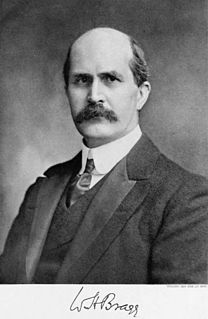A Quote by Stephen J. Dubner
Religion is a way to make order from chaos, and I think economics is not dissimilar. In religion and in economics, you're trying to figure out the way we perceive the world and move through it, and that's what I like to learn.
Related Quotes
I am practical by nature, and I'd heard that being a writer or an artist is a good way to starve! So I was an economics major at Oklahoma State, and then received an M.S. from Cornell in Agricultural Resource and Managerial Economics. I knew if I wanted to write I would do it on my own, but I knew I wouldn't make myself study economics on my own.
One of the great errors organizations make is shutting down what is a natural, life-enhancing process-chaos. We are terrified of chaos. As a manager, it signals failure. But if you move out of control and into an appreciation of natural order, you understand that the only way a system changes is when it is far from equilibrium, when it moves from the 'quiet' we treasure and is confronted with the choice to die or reorganize. And you can't reorganize to a higher level unless you risk the perils of the path through chaos.
Science is experimental, moving forward step-by-step, making trial and learning through success and failure. Is not this also the way of religion, and especially of the Christian religion? The writings of those who preach the religion have from the very beginning insisted that it is to be proved by experience. If a man is drawn towards honour and courage and endurance, justice, mercy, and charity, let him follow the way of Christ and find out for himself. No findings in science hinder him in that way.
For me, creating the clothes of Givenchy is the way to make my tribe. It's related to religion, too, because it's people trying to find identity - the young generation is looking for tribes. You have the hip-hop tribes, the punk tribes, the rockers, you have the hipsters, the bourgeois ... The fact of the tribe is that it's like a religion. Punk is like a religion, because it's a belief.
I was trying to figure out where my intellect, if I really have one, where it fit. And so I was searching. I really didn't know who I was or what I really wanted to be, and in that search, like I think you do as an actor, you end up trying to define whatever that is, and I sort of said, "Oh well, searching spiritually in a way is interesting, and Eastern religion seems to be about a search."
I think that the scienti?c way of looking at the world, and the humanistic way of looking at the world are complementary. There are important differences which should be preserved, and in trying to do away with those differences we would lose something the same way as if we tried to make all religions one religion or all races one race. There is a cultural diversity that's very valuable, and it's valuable to have different ways of looking at the world.
How should the best parts of psychology and economics interrelate in an enlightened economist's mind?... I think that these behavioral economics...or economists are probably the ones that are bending them in the correct direction. I don't think it's going to be that hard to bend economics a little to accommodate what's right in psychology.
I think enormous harm is done by religion - not just in the name of religion, but actually by religion. ... Many people do simply awful things out of sincere religious belief, not using religion as a cover the way that Saddam Hussein may have done, but really because they believe that this is what God wants them to do, going all the way back to Abraham being willing to sacrifice Isaac because God told him to do that. Putting God ahead of humanity is a terrible thing.

































